
Stories, science and secrets from the world’s brightest thought-leaders. Behavioral Grooves is the podcast that satisfies your curiosity of why we do what we do. Explanations of human behavior that will improve your relationships, your wellbeing, and your organization by helping you find your groove.
Episodes
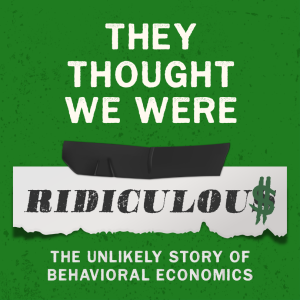
Monday Feb 26, 2024
...Ridiculous Ep. 3: Children of Unlikely Parents
Monday Feb 26, 2024
Monday Feb 26, 2024
Behavioral Economics was using psychology to understand economics, but what did economists and psychologists think about their unexpected marriage? Slowly, this fledgling field weathered a flurry of criticism from both sides as it doggedly held onto data-driven ideas about economic decision-making. This tension epitomized a broader struggle within Behavioral Economics, which aimed to harmonize insights from both disciplines while challenging traditional economic paradigms.
Embark on a journey that wasn't always smooth sailing. Unearth the fundamental clash between economists and psychologists, revealing their contrasting views on empirical evidence and theory. From contentious debates over ownership to deliberations on what to name it, the path to integrating these fields was filled with unforeseen twists, turns, and triumphs.
Discover
- Economists push back to new behavioral approaches
- How psychologists fought for a seat at the table
- Where did the name “behavioral economics” come from?
- The benefits we gain from integrating disciplines and perspectives
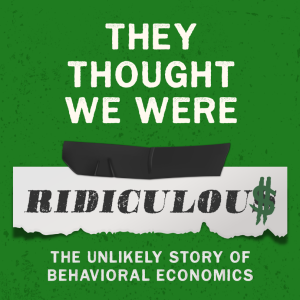
Monday Feb 26, 2024
...Ridiculous Ep. 2: Importing Psychology
Monday Feb 26, 2024
Monday Feb 26, 2024
The notion of merging psychology with economics initially faced staunch skepticism, with errors perceived as random rather than systematic. However, everything changed when psychologists Daniel Kahneman and Amos Tversky joined forces, armed with groundbreaking ideas about human decision-making. Their meticulous research not only introduced a fresh perspective on understanding people’s choices but also ignited the flames of Behavioral Economics. Through collaboration with other influential figures in the field, including Richard Thaler, their work spearheaded a transformative movement that challenged conventional economic assumptions, propelled novel ideas forward, and seamlessly integrated psychological theories into economic theory and practice.
Discover
- Are errors random or systematic? The challenges of merging psychology with economics
- Why we rely on quick mental shortcuts in decision-making
- How a single question can short-circuit the rational mind
- The importance of marrying psychology and economics for understanding our behaviors
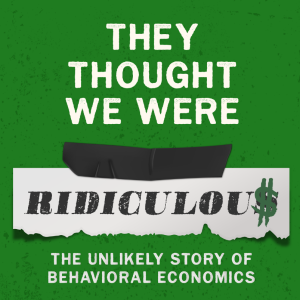
Monday Feb 26, 2024
...Ridiculous Ep. 1: Beyond Anomalies
Monday Feb 26, 2024
Monday Feb 26, 2024
For decades, neoclassical economists clung to the belief that humans are rational decision-makers, but a daring group of social scientists dared to question this notion. Join us as we explore their pioneering work, from the revolutionary concept of bounded rationality to the eye-opening Cab Driver Study. Through meticulous observations and rigorous analysis, these trailblazers shattered the status quo, ushering in a new era of economic thought.
Discover how real-world scenarios defied the rationality assumption, from the baffling fluctuations in stock market behavior to the surprising insights gleaned from everyday decision-making. As we unravel the complexities of economic behavior, we invite you to join us on a radical journey of discovery and transformation. Together, let's challenge traditional notions, advocate for a more nuanced understanding of human behavior, and pave the way for a brighter future in economics and beyond. This is more than just a podcast—it's a revolution.
Discover
- Are humans really rational decision makers?
- The radical concept of bounded rationality
- The surprising ways in which workers don’t optimize their earnings
- How the stock market defies pure rationality

Sunday Feb 18, 2024
Make Great Decisions | Elspeth Kirkman
Sunday Feb 18, 2024
Sunday Feb 18, 2024
Feeling indecisive? Ever wondered what it takes to master the art of decision-making? Join us on a thrilling journey with Elspeth Kirkman, the brilliant mind behind the groundbreaking book 'Decision Scape: The Art of Getting Perspective.'
In this episode, Kurt and Tim dive deep into the captivating world of decision-making as Kirkman takes us on an adventure through the intricacies of perspective. What if decision-making was more than just a process – what if it was an art form? Prepare to be captivated as we explore the four pillars of perspective – distance, viewpoint, composition, and frame – and uncover their essential role in navigating life's choices.
Buckle up and get ready to challenge your perceptions as we delve into the profound influence of language, culture, and even the power of voice in shaping our decisions. Are you ready to embrace multiple perspectives and unlock the secrets to making informed choices? Kirkman's insights offer a fresh and dynamic approach to decision-making, empowering listeners to navigate life's complexities with newfound clarity and introspection. So, what are you waiting for? Make the right decision and tune in!
And don’t forget to stay tuned to Behavioral Grooves for exciting upcoming announcements! Like, share, and follow us on social media for more exciting updates on our new, limited series They Thought We Were Ridiculous coming out later in February!
© 2024 Behavioral Grooves
Topics
(0:50) Important Behavioral Grooves announcement!
(6:17) Introduction and speed round
(12:19) The relationship between decision-making and art
(18:38) The importance of perspective
(26:31) Language’s impact on decision-making
(36:26) Taboo words, culture, and anxiety
(43:52) Music preferences and writing habits
(50:05) Grooving Session: Decision-making and creativity
(1:15:19) “Another Orion” by Tim Houlihan
© 2024 Behavioral Grooves
Links
Decision Scape: The Art of Getting Perspective by Elspeth Kirkman
The Statue of David by Michelangelo
Behave by Robert Sapolsky
"They Thought We Were Ridiculous": Five-part series on the history of behavioral economics - Coming Soon!
Music Links
Tim Houlihan "Another Orion"
Smashing Pumpkins "1979"
Lucinda Williams "Can't Let Go"
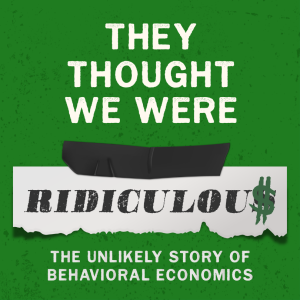
Thursday Feb 15, 2024
Trailer: They Thought We Were Ridiculous
Thursday Feb 15, 2024
Thursday Feb 15, 2024
Anticipation mounts as the countdown begins! Prepare to immerse yourself in the riveting saga of They Thought We Were Ridiculous, set to premiere and stream on your Behavioral Grooves feed come February 26th!
Two great podcasts. Three years of recording and research. Interviews with the Nobel Laureates, esteemed professors, and policymakers at the heart of a movement. It all combines to tell the unlikely story of how a group of tenacious thinkers pushed back against tradition and built ideas with impact.
Across this five-part series, we highlight the remarkable evolution of behavioral economics. From a group of rogue psychologists and economists who were openly ridiculed at conferences to a vital voice in government policy and corporate governance. Behavioral economists shape the way decisions are made. After they entered the fray, economic theory would never be the same.
Join Kurt, Tim, and Andy as we celebrate the culmination of three years of relentless dedication, unveiling a meticulously crafted five-part series that promises to captivate and inspire. Mark your calendars for February 26th, when this transformative saga will unfold in its entirety. Don't forget to subscribe, tune in, and engage with us as we delve into the riveting world of behavioral economics. Together, let's embark on this extraordinary journey!
Links
They Thought We Were Ridiculous Website
LinkedIn: Behavioral Grooves
Instagram: @behavioralgrooves
Facebook: Behavioral Grooves
Twitter: @behavioralgroov
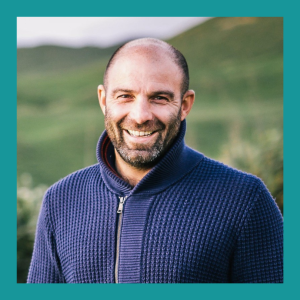
Monday Feb 12, 2024
Unlocking Intimacy: The Power of Questions | Topaz Adizes
Monday Feb 12, 2024
Monday Feb 12, 2024
Could a simple question be the key to unlocking deeper, more meaningful relationships?
Join Kurt and Tim on a special Valentine's Day episode of their podcast as they explore the transformative potential of simple questions in relationships with Topaz Adizes. Author of "12 Questions for Love" and founder of the innovative project {THE AND}, Topaz shares insights into creating intimate spaces for conversations and mastering non-judgmental listening.
Together, they delve into the profound impact of well-constructed questions, emphasizing their role in promoting personal growth and deeper connections. Drawing from rich experiences observing human behavior, Topaz offers invaluable advice on deep listening and reframing questions for meaningful dialogue. Whether you're coupled up or flying solo, tune in to discover practical strategies for fostering more fulfilling relationships and cultivating genuine connections in every aspect of life.
© 2024 Behavioral Grooves
Topics
(0:00) St. Valentine’s Day and special announcements
(6:21) Introduction and speed round
(10:47) Creating space for relationship exploration
(15:59) Reframing questions for personal growth
(23:15) Deep listening and connection in relationships
(35:13) Asking powerful questions to improve relationships
(39:31) The power of deep conversations
(47:29) Deepening relationships through emotional articulation
(59:09) Grooving on relationships and communication
© 2024 Behavioral Grooves
Links
https://www.youtube.com/channel/UC-_lLdOVYCxsxHMzUsVYsXg
Collins, Hanne K, et al. “When Listening Is Spoken.” Current Opinion in Psychology, Elsevier
Musical Links
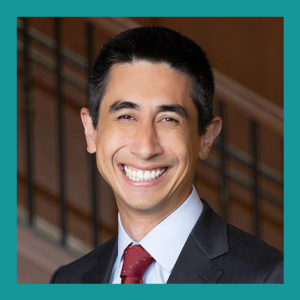
Sunday Feb 04, 2024
The Key to Boosting Retirement Savings | John Beshears
Sunday Feb 04, 2024
Sunday Feb 04, 2024
Ever wonder how to boost your retirement savings? Could the subtle art of behavioral economics hold the answer? Join Tim in this solo-sode as he explores this with guest John Beshears. Uncover the impact of automatic enrollment on participation rates and the potential downside of increased debt. Beshears' research reveals unique strategies, like framing savings as "fresh starts." Maximize your savings and delve into the evolution of behavioral economics with Tim and John in this weeks captivating episode.
© 2024 Behavioral Grooves
Topics
(7:43) Introduction and Speed Round
(12:23) The Impact of Auto-Enrollment on Retirement Savings
(16:41) The Psychology Behind Financial Decision Making
(22:31) Automatic Enrollment, Savings, and Employee Debt
(33:48) Long Term Effects
(37:37) Reframing Savings and “Fresh Starts”
(46:04) Jazz Music and Productivity
(52:35) Grooving Session: Behavioral Science and Retirement Savings
© 2024 Behavioral Grooves
Links
Automatic Enrollment and Financial Stress
Fresh Start Approach to Savings
Behavioral Economics in Action Conference
Musical Links
Charlie Parker at Massey Hall
Mose Allison "Everybody Cryin' Mercy"
Lightnin' Hopkins "What Kind of Woman is This?"
Phillip Glass "Opening"
![Decoding Behavior Change | Bri Williams [Republish]](https://pbcdn1.podbean.com/imglogo/ep-logo/pbblog2137480/Bri_Williams_Border_62v8pc_300x300.png)
Sunday Jan 28, 2024
Decoding Behavior Change | Bri Williams [Republish]
Sunday Jan 28, 2024
Sunday Jan 28, 2024
It's time for a throwback episode!
Dive into the land down under of behavioral sciences with Bri Williams, a trailblazer in applying behavioral principles to the business landscape. As a devoted follower of visionaries like Dan Ariely, BJ Fogg, and Richard Thaler, Bri recognized the need for more than just frameworks in the business community – they needed practical tools. Founder of PeoplePatterns, Bri transforms the abstract concepts of behavioral science into actionable strategies for business leaders.
In this enlightening conversation, Bri unveils her unique model focused on dismantling barriers to behavior change: apathy, paralysis, and anxiety. Explore intriguing topics such as priming and Bri's keen observations of nudges in the world. Delve into her book, "Behavioural Economics for Business," and enjoy the journey as we explore various rabbit holes including... origami of toilet paper?
Join us in this immersive conversation with Bri Williams. Share this episode with a friend, and let's expand the community of behavioral science enthusiasts together!
© 2024 Behavioral Grooves
Topics
(4:08) Introduction and Speed Round
(7:11) Developing a Behavioral Framework
(13:23) Business Model for Behavior Change
(18:50) Comparing other models
(25:15) Origami of Toilet Paper with Lou Carbone
(33:00) 3 Tips for improving habits
(39:10) Music recommendations
(41:56) Grooving Session
© 2024 Behavioral Grooves
Links
Behavioural Economics for Business
Training and Coaching with Bri
Musical Links

Sunday Jan 21, 2024
Mapping Out Our Minds | Linnea Gandhi
Sunday Jan 21, 2024
Sunday Jan 21, 2024
Set sail into the uncharted waters of behavioral science with Kurt and Tim on a captivating journey led by PhD candidate Linnea Gandhi. Together, they explore the revolutionary concept of Nudge Cartography, a groundbreaking initiative that seeks to map the intricate landscape of behavioral nudges – those subtle interventions designed to shape human behavior. If you're scratching your head wondering, "Nudge Cartography? What's that?" fear not! Kurt and Tim are your fearless guides, ready to unravel the mysteries and implications of this fascinating exploration.
Nudge Cartography challenges the traditional view of academic research in behavioral science, urging practitioners to see research papers not merely as products but as essential marketing tools. Linnea Gandhi, in her insightful observations, emphasizes the transformative power of understanding the world through research and the need to use that understanding for positive change. Kurt and Tim navigate through the implications of this perspective, discussing the critical role of replication in research and the broader mission of comprehending the world to drive meaningful improvements.
Curious about the specifics of Nudge Cartography? Tune in to this episode as Kurt and Tim decode the project's significance, shedding light on regional variations in responses to behavioral interventions. Join the conversation and embark on a thought-provoking expedition that challenges the norms of behavioral science while providing valuable insights for researchers, practitioners, and curious minds alike.
© 2024 Behavioral Grooves
Topics
(0:07) What is Nudge Cartography?
(3:55) Computational social science and mapmaking
(8:21) Mapping behavioral science with experiments
(15:33) The importance of generalizable knowledge in science
(21:29) Developing a nudge experiment database
(28:17) Using data to understand human behavior
(36:25) Closing thoughts, work processes, and musical preferences
(38:23) Grooving on Nudge Cartography
© 2024 Behavioral Grooves
Links
Computational Social Science Lab at UPenn
Musical Links
Classical Music "Best Of" Compilation
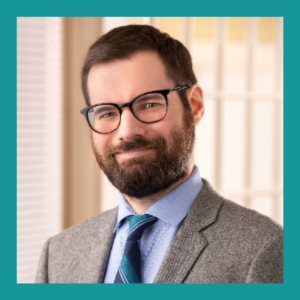
Monday Jan 15, 2024
Adapt, Recover, Grow: Mastering Resilience | Dr. Jonathan DePierro
Monday Jan 15, 2024
Monday Jan 15, 2024
What is resilience, and how can we cultivate it in our lives? In this episode, delve into the fascinating world of resilience with an exclusive interview featuring Dr. Jonathan DePierro, author of the insightful book "Resilience." Join Kurt and Tim as Dr. DePierro defines resilience as more than just bouncing back; it's the ability to adapt, recover, and grow stronger in the face of life's challenges.
Discover the practical applications of resilience skills in navigating everyday stressors and gain a deeper understanding of the brain science behind building resilience through the power of social support. Dr. DePierro shares his experiences working with 9/11 responders and healthcare professionals during the challenges of the COVID-19 pandemic, offering valuable insights into how resilience can be a guiding force in times of crisis.
This episode isn't just about individual resilience – it extends to the organizational level, providing valuable takeaways for creating resilient communities. Learn how to foster a culture of adaptability and growth that can withstand the tests of time.
Tune in to gain a profound understanding of resilience and explore practical strategies for developing it in your own life. Dr. Jonathan DePierro's expertise and real-world experiences make this episode a must-listen for anyone seeking to navigate life's uncertainties with strength and resilience.
© 2023 Behavioral Grooves
Topics
(4:50) Introduction and Speed Round
(8:47) Resilience and Growth in the Face of Challenges
(12:55) Coping with Trauma
(17:23) Resilience, Optimism, and Social Support
(28:58) Building Resilience in Individuals and Organizations
(38:59) The Power of Music to Evoke Memories and Emotions
(45:01) Reframing Experiences and Building Resilience
(48:37) Grooving Session: Resilience and Problem-solving in Challenging times
© 2023 Behavioral Grooves
Links
Resilience: The Science of Mastering Life's Greatest Challenges
Mount Sinai's Center for Stress, Resilience and Personal Growth
Musical Links
Gregorian Master of Chant Fix You
Hercules Film A Star is Born
Elton John Bennie and the Jets
Earth, Wind, Fire September
Paul Simon You Can Call Me Al
